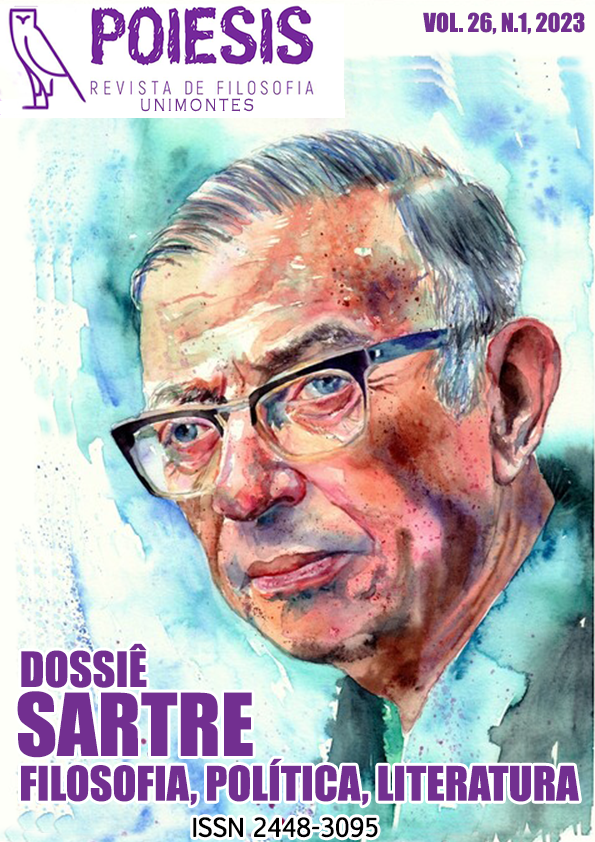SARTRE AND THE DISSOLUTION OF THE SENSE OF EXISTENCE AS A DISSOLUTION OF THE TEMPORALITY OF THE PROJECT
Keywords:
Sartre, existencialismo, literatura, temporalidade, ontologia.Abstract
The protagonist of the novel Nausea (1938), Antoine Roquentin, is unable to connect with
others and make sense of himself and the world around him. This disarticulation of meaning is
expressed in a profound malaise, Nausea. To restore the lost meaning, Roquentin seeks a temporal
articulation that, as in a narrative structure, could connect the past with the present. However,
Roquentin concludes that the past does not exist, there is only a contingent present that drags on
without past and future. In this article, we are going to show that there is a necessary connection
between time and meaning in order to think the emotion of meaning in Nausea as a cause of
temporality. For this, we will go through the onto-phenomenological description of temporality in O
ser e o nada. Reading O ser e o nada makes us understand that meaning should not be sought in the
past, but in a project for the future. It is the absence of a project that makes sense disarticulate. Following this line of interpretation, we can say that the possibility of “salvation” from Nausea
envisaged by Roquentin in the project of being a writer is precisely a project for the future. There is an
ambiguity in this project: at the same time that he wants to create a work of fiction, Roquentin wants
to reconnect with reality through the imaginary: to be read by others who would give him the sense of
being a writer who “was wandering around cafes”. The project of being a writer, articulating reality
with imaginary creation, leads us to conclude that the breadth of the temporal meaning of the project is
much richer than the “varnish” of insufficient logical and usual meaning that Roquentin initially
sought to attribute to things.
Downloads
References
BORNHEIM, Gerd. Sartre: metafísica e existencialismo. São Paulo: Perspectiva, 2000.
HOSTE, Vinícius Xavier. Belo impossível: a construção da noção de beleza no pensamento de Sartre. Tese (Doutorado em Filosofia). Universidade Federal de São Carlos, 2022.
MOUTINHO, L. D. Sartre – psicologia e fenomenologia. São Paulo: Brasiliense, 1995.
NOUDELMANN, François; PHILIPPE, Gilles. (Org). Dictionnaire Sartre. Paris: Honoré Champion
SARTRE, Jean Paul. A náusea. Trad. Rita Braga Rio de Janeiro: Nova Fronteira, 1984.
______. L’être et le néant: essai d’ontologie phénoménologique. Paris: Gallimard, 1943.
______.O ser e o nada: ensaio de ontologia fenomenológica. Trad. Paulo Perdigão 5ª ed., Petrópolis: Vozes, 1997.
______. O imaginário: psicologia fenomenológica da imaginação. Trad. Duda Machado. São Paulo: Ática, 1996.
SILVA, Franklin Leopoldo e. Ética e literatura em Sartre: ensaios introdutórios. São Paulo: UNESP, 2004.
SOUZA, Thana Mara de. Sartre e a literatura engajada: espelho crítico e a consciência infeliz. São Paulo: EDUSP, 2008.
Downloads
Published
How to Cite
Issue
Section
License
Copyright (c) 2023 Revista Poiesis

This work is licensed under a Creative Commons Attribution-NonCommercial-NoDerivatives 4.0 International License.





.png)

